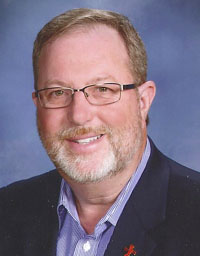Justice Perspective: From a Catholic perspective, health care is a basic human right
by DEACON DON WEIGEL
Within all of the debate of what to do with the Affordable Care Act ("Obamacare") - and how to replace, revise or remove it - almost all of the emphasis is on the cost and the coverages. Of course, these are the practical issues of prudential judgment that need to be made regarding any public policy. But, as in all prudential judgments, the decisions that should be made must come from some set of principles, not solely based on what works best.
From our Catholic perspective, we are obliged to understand and act from the moral principles that we hold and our Gospel values, not from a position of what is practical or efficient. Our opposition to abortion, for instance, is based on our belief that life begins at conception and that all life is a sacred gift from God. That principle overrides any "practical" considerations about whether or not abortion is an "efficient" means of family planning. We may have different prudential judgments about how to reduce abortions, like focusing on reducing the demand for abortion rather than focusing on the supply, but our opposition is grounded in principles regarding human life and dignity.
Our political perspective on health care must also be grounded in solid principles. The first and primary principle was stated by the U.S. bishops in their 1993 document, "A Framework for Health Care Reform." It states, "Every person has a right to adequate health care. This right flows from the sanctity of human life, and the dignity that belongs to all human persons, who are made in the image of God."
This principle was first stated by Pope John XXIII in his groundbreaking encyclical letter "Pacem in Terris." He wrote that health care is deemed by the Church as a basic human right, along with life, food, clothing and shelter. The Catechism of the Catholic Church explains that the political community has a duty to ensure the right to medical care (par. 2211), and further states that the pursuit of the common good must include health care in order to attain acceptable living conditions (par. 2288).
Archbishop (later Cardinal) Donald Wuerl once expanded on this principle with these specifics: "We teach that health care is a basic human right, an essential safeguard of human life and dignity. Health care reform especially needs to protect those at the beginning of life and at its end, the most vulnerable and the voiceless. It is essential that reform include long-standing and widely-supported federal restrictions on abortion funding and mandates and uphold existing conscience protections for health care providers. Universal coverage should be universal, including everyone. Health care reform cannot leave people out because of pre-existing conditions, chronic illnesses, their place of work, or because they cannot afford insurance. Reform should not leave people out because of where they come from or when they arrived here."
In other words, the foundational principle that "adequate health care" is a human right, means that it must be available and affordable to all, regardless of the condition of their health, their age, their legal status, or their ability to pay. And it must not participate in terminating life at the beginning or at its end.
As our lawmakers debate specific policies and provisions of any health care reform, we must judge their proposals through the lens of our Catholic conscience and insist on this first principle of health care as a human right. We need to raise our voices to our legislators and our president to assure that this principle is followed.
Deacon Don Weigel is the associate public policy coordinator at Catholic Charities of Buffalo and is a Global Fellow with Catholic Relief Services.




